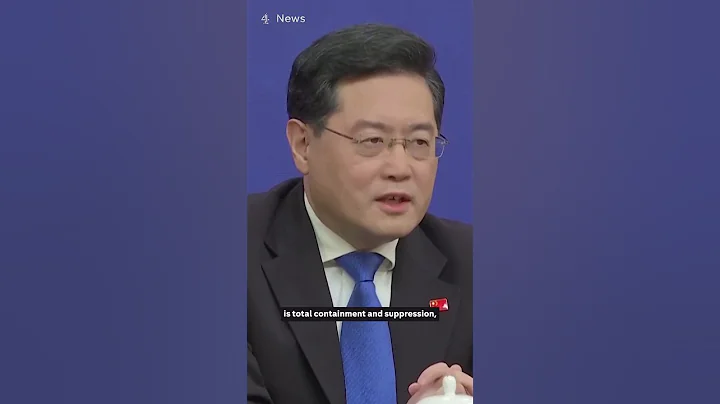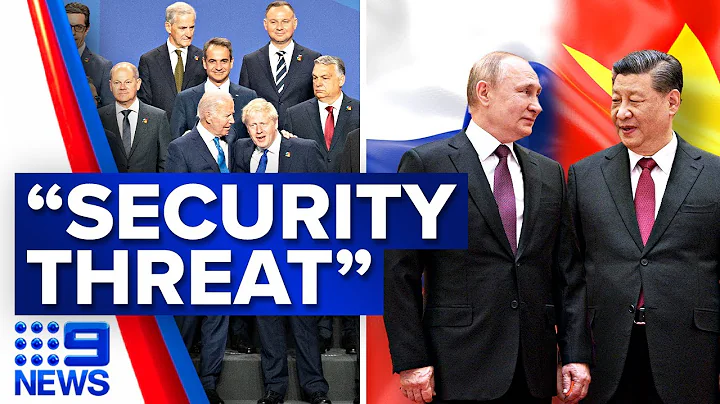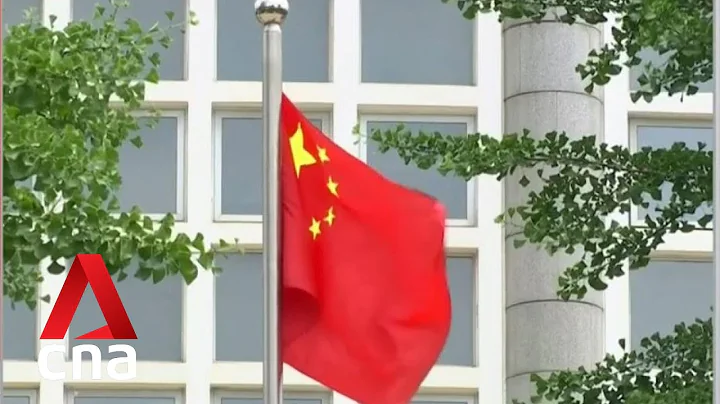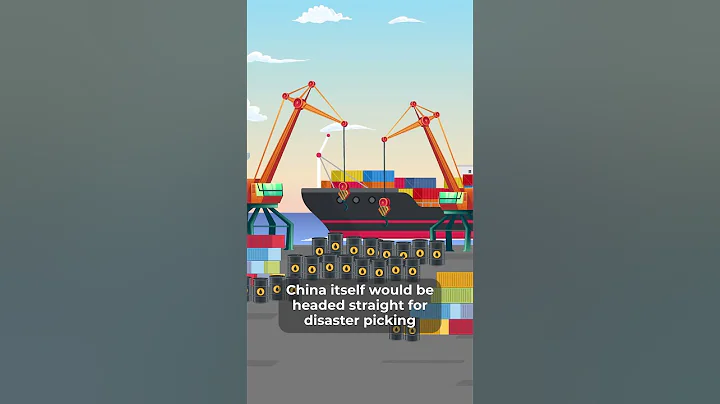A few days ago, in the latest strategic document collectively adopted by the heads of NATO member states, China and Russia were unsurprisingly listed as the focus of "care". China was not only listed as a "systemic challenge", but also China's sovereignty Questions were also commented inappropriately.
According to this strategic document released by NATO, it basically determines the organization's priorities and core tasks for the next ten years. In the future, NATO will arrange its political, diplomatic and military activities accordingly.
However, the document used a lot of space to discredit China, such as claiming that China "threatens NATO's interests, security and values", "extensively uses political, economic and military means to project power", and "strategic intentions and military construction are not transparent" "wait.

After reading the entire article, it is not difficult to find that in this strategic document, the accusation of labeling China is very serious, but the evidence presented is all vague and speculative.
What is particularly noteworthy is that NATO Secretary General Stoltenberg has expressed different opinions several times on how to deal with China. The day before the
summit, Stoltenberg made a high-profile announcement to the outside world, claiming that the summit would talk about China and the challenges it brings. On the first day of the summit, Stoltenberg changed his tone again. He said he did not want to be an enemy of mainland China, but he also tried to sow discord between China and Russia, claiming that he was "uneasy" about the closer relations between China and Russia.

However, on June 30, Stoltenberg emphasized that mainland China posed a security threat to NATO, and used the word "neighbor" to describe the Taiwan region. said he was "very worried" about the situation in the Taiwan Strait .
Combining NATO's latest strategy and Stoltenberg's speech, and putting aside the modification of various written vocabulary, we can have a general understanding of NATO's intentions. It can be said that on the issue of China, NATO exists There are three interrelated and contradictory strategies.
First of all, NATO has greatly increased its attention to China, but its primary strategic goal is still Russia . Over the past few decades, NATO's focus has been Russia. Today, although it refers to "China and Russia" together, it still "cares" more about Russia.

Moreover, it is expected that new disputes will break out between NATO and Russia. In view of the fact that Sweden and Finland have joined NATO, although Russia has expressed no objection, if NATO deploys military facilities in the two countries, that is a different matter. Having said that, after Sweden and Finland join, the border between NATO and Russia will increase significantly, and no one can guarantee that nothing will happen.
Regarding China, NATO is mainly engaged in public opinion building and trying to coordinate the positions of its member states. At present, NATO wants to switch its target to China immediately, which is still difficult. This is not only because its traditional strategic deployment is not in Asia, but also because many of its member countries have close relations with China.

Therefore, there are still certain differences within NATO on the issue of how to deal with China, which means that NATO countries are not completely unanimous in targeting China. Therefore, NATO is still at the stage of making harsh words. However, we must not take it lightly. As long as the United States is behind the scenes, NATO's strategic goals will rapidly adjust to Asia.
Secondly, NATO will use the "China threat theory" as an excuse to project its power into the Asia-Pacific region. In the traditional sense, NATO and China are far apart, and there is no conflict between the two. It is very difficult for NATO to cooperate with the US "Indo-Pacific" strategy.
But from the perspective of the United States, the strength of the United States’ Asian allies is very limited and it is difficult for the United States to help the United States encircle China. The United States has been unwilling to completely let go of its only significant ally, Japan. Under such circumstances, the United States persisted in its efforts to introduce NATO to the Asia-Pacific, even in the face of great difficulties.

In order to achieve this goal, the United States organized Japan, South Korea, Australia, New Zealand to participate in this NATO summit.Next, NATO is likely to use these four countries as the fulcrum to launch activities in the Asia-Pacific region, and then put pressure on China.
Finally, NATO’s stance on issues involving our national sovereignty is worthy of vigilance. While trying to piece together "criminals" for mainland China, NATO also publicly talked about the Taiwan issue and described the Taiwan region as a "near neighbor."
This exposed the deep heart of NATO, which did not want to recognize the "one-China" principle, so it tried to adjust its position bit by bit through "edge balls". Without a strong response from us, NATO's tests are likely to become increasingly bold. As NATO forces gradually enter the Asia-Pacific region, China may face a brand-new opponent in the direction of the Taiwan Strait in the future.

However, as far as the current situation is concerned, it is not easy for NATO, as the largest military organization in the world, to turn around. Therefore, there is no need to worry too much about whether NATO will have a great impact on China's interests in the short term.
We only need to pay attention to two points to roughly grasp the trends of NATO. First, to what extent NATO will collude with Japan, South Korea, Australia and New Zealand, and second, in what way will the United States push NATO eastward behind the scenes.
It can be said that only these two points can have a real impact. As for other empty words that NATO talks about, just listen to it and don't care too much. It is the last word that we strengthen our own strength and strengthen our own military construction!





















